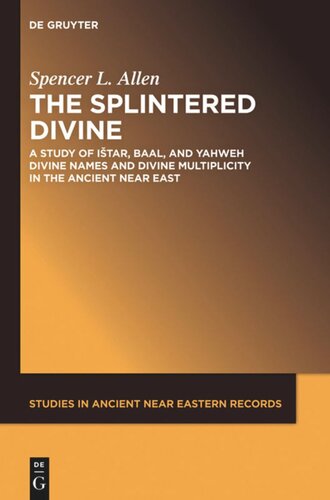

Most ebook files are in PDF format, so you can easily read them using various software such as Foxit Reader or directly on the Google Chrome browser.
Some ebook files are released by publishers in other formats such as .awz, .mobi, .epub, .fb2, etc. You may need to install specific software to read these formats on mobile/PC, such as Calibre.
Please read the tutorial at this link: https://ebookbell.com/faq
We offer FREE conversion to the popular formats you request; however, this may take some time. Therefore, right after payment, please email us, and we will try to provide the service as quickly as possible.
For some exceptional file formats or broken links (if any), please refrain from opening any disputes. Instead, email us first, and we will try to assist within a maximum of 6 hours.
EbookBell Team

0.0
0 reviewsThis book investigates the issue of the singularity versus the multiplicity of ancient Near Eastern deities who are known by a common first name but differentiated by their last names, or geographic epithets. It focuses primarily on the Ištar divine names in Mesopotamia, Baal names in the Levant, and Yahweh names in Israel, and it is structured around four key questions: How did the ancients define what it meant to be a god - or more pragmatically, what kind of treatment did a personality or object need to receive in order to be considered a god by the ancients? Upon what bases and according to which texts do modern scholars determine when a personality or object is a god in an ancient culture? In what ways are deities with both first and last names treated the same and differently from deities with only first names? Under what circumstances are deities with common first names and different last names recognizable as distinct independent deities, and under what circumstances are they merely local manifestations of an overarching deity? The conclusions drawn about the singularity of local manifestations versus the multiplicity of independent deities are specific to each individual first name examined in accordance with the data and texts available for each divine first name.